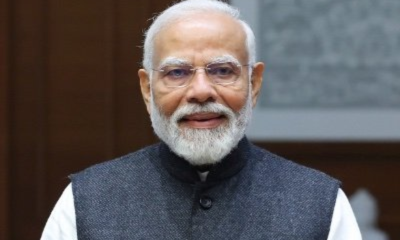President Biden’s recent statements on Saudi Arabia, Israel-Palestine, and nuclear worries have prompted debate regarding the United States’ Middle East foreign policy stance. This article goes into the ramifications for regional dynamics and global security addressed by President Biden, as well as the intricacies of these interactions. As the Biden administration navigates these difficult topics, it must strike a fine balance between advancing US interests and maintaining regional stability.
President Biden’s words against Saudi Arabia imply a rethinking of the two countries’ long-standing friendship. While recognising Saudi Arabia’s significance as a regional partner, the administration has raised concerns about human rights violations and the Saudi-led military intervention in Yemen. The US aspires to establish a more productive and responsible partnership, highlighting the importance of human rights development and calling for an end to the Yemen crisis.
The Israel-Palestine Conflict and Two-State Solution
President Biden’s remarks on Israel-Palestine reiterate the United States’ support for a two-state solution. The administration supports diplomatic efforts to reach a long-term peace solution that protects both Israeli and Palestinian security. President Biden’s focus on a negotiated solution underscores the United States’ role as a facilitator, attempting to stimulate communication and support confidence-building measures among the parties concerned.
President Biden’s statements on nuclear issues emphasize the significance of non-proliferation and regional stability. The administration’s goal is to prevent the spread of nuclear weapons while also encouraging adherence to international accords such as the Joint Comprehensive Plan of Action (JCPOA) with Iran. The US intends to engage in diplomatic diplomacy to resolve nuclear problems and enhance Middle Eastern strategic stability.
The concerns mentioned by President Biden highlight the Middle East’s complexity and difficulties. Balancing US interests, regional dynamics, and global security requires sophisticated diplomacy and careful consideration of all players. The government must establish positive ties while addressing human rights issues, advancing peace talks, and combating nuclear proliferation dangers.
The Biden administration stresses the necessity of diplomatic engagement and global collaboration in addressing these difficult concerns. The United States tries to foster agreement, encourage conversation, and advance common goals by collaborating closely with regional partners, international organizations, and allies.
Multilateral collaboration is essential for resolving regional crises, supporting human rights, and avoiding the spread of weapons of mass destruction.
ALSO READ: Saudi Arabia Unveils Groundbreaking Riyadh Air, Revolutionizing Sustainability and Setting New Environmental Standards
President Biden’s recent remarks on Saudi Arabia, Israel-Palestine, and nuclear worries highlight the administration’s commitment to recalibrating US Middle East strategy. The US seeks to establish positive connections, promote human rights, encourage peace talks, and handle nuclear proliferation concerns.
Navigating these connections’ intricacies requires diplomacy, multilateral collaboration, and a long-term commitment to fostering regional peace and security.






















